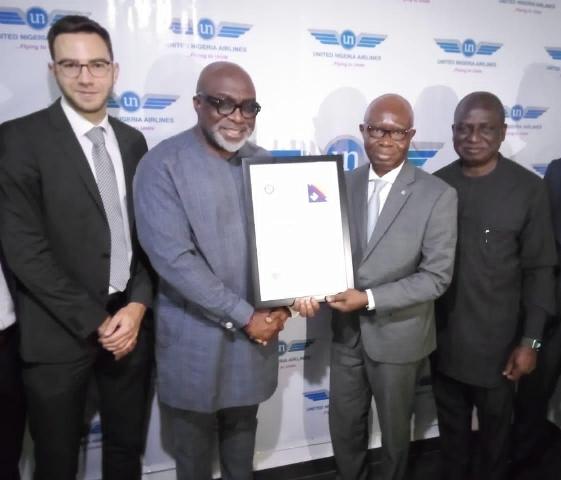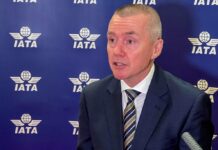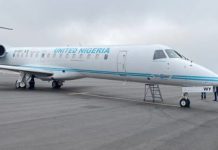
The chairman of United Nigeria Airlines (UNA), Prof Obiora Okonkwo has said the Nigerian government’s focus on the domestic carriers to have a minimum of six aircraft before starting operations begs the question of what the challenges of aviation in Nigeria really are .
Recall that the new Nigeria Civil Aviation Regulation Act 2022 has increased the minimum pegged the minimum number of operating aircraft for start-up airlines from two ab initio to six.
The director general of Nigeria’s civil aviation authority, Capt. Musa Nuhu, explained that the aim is to ensure that operators are more responsible in their operations, improve capacity and have enough equipment to service their schedule seamlessly.
Reacting to the development in his office in Lagos yesterday, Okonkwo said even if the new fleet capacity rule was implemented, it would pale into insignificance if airport infrastructure were not improved commensurately.
The UNA chairman who stated this after receiving the International Air Transport Association (IATA) membership certificate, also said though flight delays and cancellations are regrettable, most of the causal factors are beyond the airline operators that are often blamed for chaotic services.
”Only two or three percent of delays are attributed to the operators because every aircraft owners knows that you only make money when the aircraft flies, aircraft on the ground incurs expenses and when it is the time for maintenance and lease payment to be paid, nobody asks whether you fly or not, so it pays us to fly.
The only way the operators make money is when they sell tickets and it’s only when the ticket is utillised. Even when they come for refund, we don’t make money from that.
“We are the number one beneficiaries if aircraft leaves timely and costumers get to their destinations. We know that from practical experience, the solution is not the number of aircraft. Do they intend that there should be some of aircraft waiting to cover some passengers? That does not make any commercial sense. We believe that they should leave people to choose the number aircraft they want but the minimum they have now which is three is good enough.
“Besides that, the few airlines already operating are facing a great infrastructure deficit; some of the airports don’t even have enough parking spaces for the number of airlines that are coming in. The check-in counters are not enough for manpower. Do they know what it takes to say there must be six aircraft? You are tripling the number of manpower needed to fly and maintain them.
“We think that the space we have at the airports now is not enough, they should expand the airports three times, they need to expand the check-in counters, improve the facilities . Based on the number of aircraft waiting for delivery, in the next two, three years, we should have about 100 new aircraft in this country by existing operators and we are already talking about the need for certain improvement in infrastructure. So I think that should be our focus for now.
“The focus should also be how to work to ensure maximisation of the aircraft we have. Aircraft in Nigeria are underutilised; we are only constrained to fly our aircraft for eight hours as against 18 hours due to infrastructure issue. You are attracted to lessors when they know that the aircraft would be utilised,” he said.
However, Okonkwo expressed the appreciation of the Airline Operators of Nigeria (AON) to the NCAA for its regulatory approach saying “its oversight has been helpful in the area of safety and comfort.?
Nevertheless, he said “by the time they (NCAA) step out of that safety regulatory issues and ICAO implementations and delve into the number of aircraft for the airlines, they are now determining the business model for airlines.
He contended that the number of aircraft should not be the preoccupation of the NCAA because already one-aircraft operators exist in Nigeria and in some other countries and they are comfortable with what they do.
“You may be surprised to know that there are Air Operator’s Certificate (AOC) owners who are members of AON and they have only one helicopter servicing oil industry and they are happy with it. They need the AOC to operate; it’s their business model. When you go to other parts of the world, there are people that have two or three copters, servicing one airport to another; they want to remain there, they are not forced to grow.
“The issue is that the number of aircraft you have would not determine how fast you get to your destination, it does solve the problem of delay because if the problem of delay is as a result of VIP movement, if you have 100 aircraft, they will remain on the land.
“The problem of delay is due to weather; you can’t land into airport because the instrument landing system (ILS) is not calibrated or the necessary equipment are not available, there is nothing you can do. Therefore, we think that as soon as all the relevant bodies are able to provide the necessary infrastructure and create the right environment, this problem will solve itself,” he said.























































